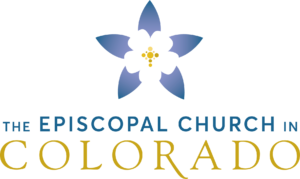 Becoming a Pastoral Leader in the Episcopal Church in Colorado
Becoming a Pastoral Leader in the Episcopal Church in Colorado
A pastoral leader is a lay person licensed under special appointment or circumstances to exercise pastoral and/or administrative responsibility in a congregation. Pastoral Leaders may be licensed to regularly lead the offices authorized by the Book of Common Prayer (BCP). This ministry is licensed under the provisions of the canon for licensed lay persons, and a pastoral leader must be a confirmed adult communicant in good standing in the Episcopal Church.
Guidelines for selection and training of pastoral leaders are established by the bishop. A pastoral leader is to be trained, examined, and found competent in the Holy Scriptures, spiritual practices, the BCP and Hymnal, the conduct of public worship, leading reflections and Christian formation, church history, the church’s doctrine as set forth in the Creeds and An Outline of the Faith (the Catechism, BCP, pp. 845-862), parish administration, appropriate canons, and pastoral care.
A pastoral leader may not be licensed if the bishop or ecclesiastical authority determines that the congregation is able and has had reasonable opportunity to secure a resident clergy person in charge. A pastoral leader may be commissioned for this ministry with a form adapted from the Commissioning for Lay Ministries in the Church of the Book of Occasional Services.
 Applying
Applying
The application process opens during the season of Lent each year and is expected to take 2-3 months to complete.
The process outlined below is intended to help the bishop and canon for mission and operations get to know more about you, your faith journey, and your decision to take this step.
Individuals discerning a call to pastoral leader ministry (“seekers”) should first meet with a discernment priest for guidance and support.
Seekers are also encouraged to explore resources for discernment.
 Training
Training
With the approval of the Bishop, candidates can begin completing the training process. Training is offered annually beginning in September and concludes the following May.
Pastoral leaders candidates are required to complete a broad course of training and study, with components that are academic, formational, and practical/experiential. Training is administered by the formation team of the Office of the Bishop in partnership with the Iona Collaborative (Seminary of the Southwest). Most of the materials are online and self-paced, with regular online and in-person opportunities for engagement with other ministry leaders and trainees. A three-date retreat is held at Cathedral Ridge during the second half of the training to continue formation in community and celebrate the gifts of the journey to pastoral leader ministry.
Pastoral leader candidates are accompanied through the training process by a priest mentor for support, supervision, and guidance.
Commissioning
Upon completion of required training, your mentor will complete the license application on your behalf. This is an online form that is reviewed and approved by the Canon for Mission and Operations.
- The pastoral leader license is granted by the Bishop for the congregation in which the applicant will serve.
- The license can be revoked by the Bishop upon request of the Bishop’s representative, priest, or regional missioner.
- The Office of the Bishop will support the vestry/bishop’s committee and pastoral leader in drafting a letter of agreement between the two parties.
- Licenses are issued for a period of four years.
- Pastoral leaders are commissioned for this ministry with a form adapted from the Commissioning for Lay Ministries in the Church from the Book of Occasional Services.
